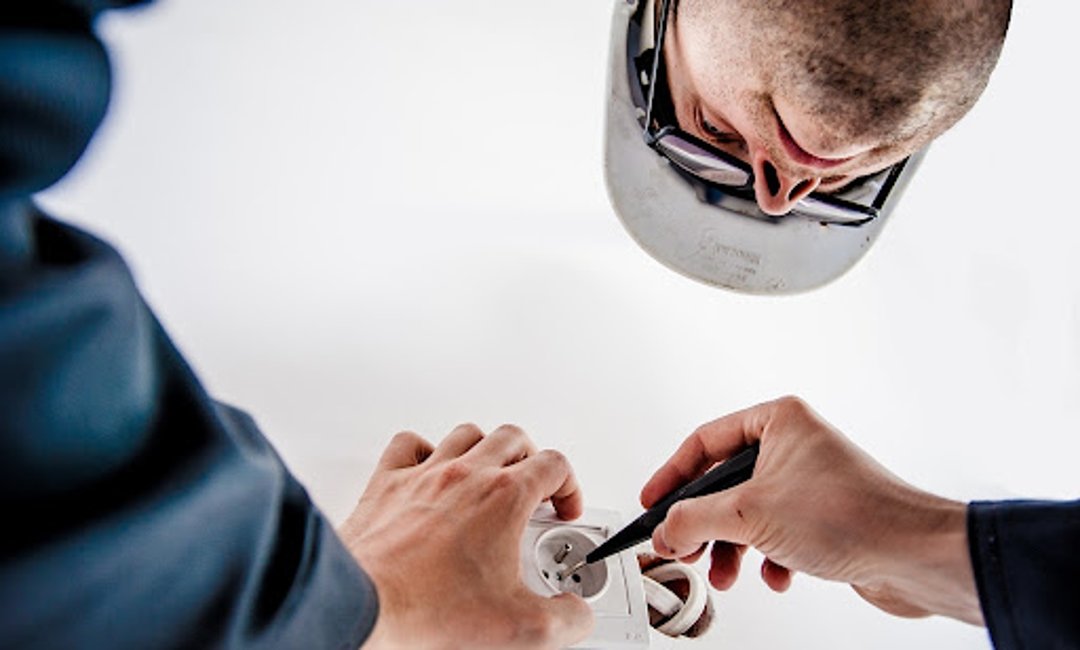Workers across all industries rely on the right tools to get the job done successfully, including electricians who ensure our homes are connected to power, stay illuminated, and are energy-efficient.
The right tools and skills allow electricians to deliver safe and reliable solutions. In this article, you’ll find the best electrician tools every electrician needs. This list includes basic electrician hand tools, power tools, and professional tools that can make your job easier.
Finding the Right Electrical Tools for Your Tool Box
Below, you’ll find a list of electrician tools organized according to several categories. The essential tools for electricians cover a broad range, including hand and power tools and safety gears.
Electrician Hand Tools
1. Pliers
Pliers, cutting pliers, or lineman pliers are a must in every electrician’s toolbox. Pliers are used for cutting, gripping, twisting, bending, or straightening wires. Electricians stock a wide variety of pliers, including:
- Channel-lock pliers – Also called pump pliers. They are used to grab hold of, tighten or loosen nuts, bolts, clips, or springs.
- Lineman’s pliers – Referred to as side cutters. These work great to cut through single gauge cable up to around four gauge.
- Diagonal pliers – Designed especially for cutting. They can be used in tight places like an outlet box.
- Needle nose pliers – Great for grabbing and pinching things like twisting wire around terminals.
Get Help With Electrician Marketing
2. Wire Strippers
A wire stripper will allow you to strip the plastic coating on wires quickly and neatly. You may do this to expose the copper wire to connect with other wires or electrical components. Wire strippers come in several types and models, so you have a wide array to choose from.
3. Screwdriver
Screwdrivers are another must in an electrician’s toolbox. These are used to loosen and tighten several pieces of hardware. Many professionals carry a versatile and adaptable set of screwdrivers. Some even come with interchangeable bits, so you’re never caught without the right one. You can also get insulated screwdrivers that can help protect against electric shocks.
4. Crimps
Crimping is a daily reality, so a pair of crimps should have a permanent place in your toolbox. A wire crimper can crimp brass grounding sleeves or insulated terminal connectors. An open-jaw crimp provides better leverage and uses a more natural and ergonomic action.
5. Tape Measure
It’s important to get the proper measurements when mounting light fixtures, boxes, running conduits, etc. This is why you need a good tape measure. A simple, retractable tape measure can work but may not be ideal. Look for one with a heavy-duty blade, multi-step lock, magnetic clip, and other features that can make measuring easier. Measuring tools are an important element of your tool bag.
6. Level
To ensure light fixtures are in the right place, you must be precise. A level can help ensure fixtures, screws, and other installations are in the correct positions. It can also make the installation look neat and professional.
Get Help With Electrician Marketing
7. Fish Tape
Fish tape is excellent for running wires between gang boxes or other electrical components through conduit piping. The tape comes in a retractable coil housing and is fed through installed conduit piping. When the end appears on the opposite side, you can hook the wires and retract the tape. When you retract the tape, it pulls the wire along the conduit.
8. Fish Rods
Fishing rods are essential when installing wires through walls, below carpets, or above ceilings. They’re usually made from fiberglass and have a hook at one end. They can be threaded together to make one long rod or used individually. Some even glow in the dark and illuminate dark workspaces like attics.
9. Voltage Tester
When performing electrical works, power must be cut from that section of the property. This is usually done via the circuit breaker. A voltage tester will test for power and let you know if it is safe to work on an outlet. Some even use it to confirm that power has been restored to that section of the property.
10. Conduit Bender
You’ll need to run wiring along the wall corner or in a hidden area. As the name suggests, conduit benders bend conduit piping so that the conduits are out of the way and effectively placed in your client’s home.
Electrician Power Tools
11. Electric Drill
An electric drill can help you save loads of time. Electricians constantly install or disassemble installed hardware to access wiring and other electrical components. An electric drill can speed up the process. Keep a set of drill bits, including specialty bits, for industry-specific purposes.
Safety Tools Electricians Need
12. Insulated Gloves
Electricians are always at risk for electrocution. This is why it’s essential to prevent accidents at work. Insulated gloves add a layer of protection when performing electrical work. They play a crucial role, so they are a must in every electrician’s toolbox. These gloves come in various sizes, colors, and styles, so choose ones that fit well and feel comfortable.
13. Safety Glasses
Safety glasses help protect your eyes when examining electrical wiring or operating power tools. Always keep a pair of safety glasses on hand, whether you’re an apprentice or seasoned professional.
14. Rescue Rod or Hook
In the unfortunate event of someone getting electrocuted, a rescue rod or hook can remove them from the hazardous area. The rod/hook can also remove large items from danger zones.
It’s always best to let emergency first-responders use the rescue rod/hook. This is because the electrical current may still be live in the area. First responders are trained to use these rescue rods to rescue someone without getting electrocuted themselves.
Get Help With Electrician Marketing
15. Flame Resistant Clothing
Safety comes first in this line of work. It’s always better to be safe than sorry and do your best to minimize the risk of getting hurt on the job. Wearing flame-resistant clothing can prevent severe burns and other injuries.
Other Essential Tools for Electrician
16. Wire or Cable Lugs
Wire and cable lugs are similar to jumper cables and car batteries. These connect wires to appliances, cables, and other devices that need power.
17. Coax Connector
These connectors link cables to devices and protect the cables from shredding simultaneously. You can find various coax connectors on hand, so keep a few different ones in your toolbox.
18. Terminal Block
Terminal blocks are modular, insulated devices that can be used when grouping multiple wires. They can connect wiring to a grounding wire or electrical switches and outlets to mains.
19. Splicing Connector
Splicing connectors are plastic clips that allow you to make quick connections with multiple pieces of wire. This includes telephone cables, device wires, and electrical cables.
20. Cable Ties
Cable ties, also called zip ties, are great for binding electrical cables or wires together. They are inexpensive and keep your electrical space neat and organized.
21. Electrical Tape
Electrical tape can insulate wires and other materials that conduct electricity. This adhesive material is usually made from plastic, vinyl, or fiberglass cloth. It’s pressure sensitive and stops the electrical current from accidentally passing to other wires. Electrical tape reduces the chances of electrocution when touching live wires.
22. Flashlight or LED Headlamp
Electricians will, at some point, have to work in the dark. This can be a safety hazard, so be sure to keep a flashlight handy. If you prefer having your hands free, then an LED headlamp might be a better option.
Electrician Professional Tools
23. Circuit Analyzers
Circuit analyzers provide instant information about any circuit connected to an individual outlet. This handheld device measures the voltage, polarity, line voltage, reversals, and more in just a few seconds.
24. Circuit Finders
It can be hard to pinpoint which outlets are connected to which circuits in a house. Electricians use circuit finders to tell which is connected to which. It does this by using two components. The first is a digital transmitter, and the second is a tiny receiver that plugs into the outlets in question.
You can hold the transmitter to the circuits in the breaker, and the device will send a signal to the receiver. This way, you can tell which circuit the outlet belongs to.
25. Electrical Business Software and Solutions.
Gone are the days of trying to market and run your business the old way using offline methods. Thanks to significant technological strides, you can now run your electrical business using various digital tools.
Business software can help you create invoices and estimates in just a few minutes. You can also use digital marketing tools to scale and grow your business. Doing so can put you far ahead in your industry and give you a greater edge over your competitors.
Let Scorpion Help You With Your Electrical Marketing
These are just a few electrician tools that you need in your toolbox to set you up for success. You will even find various electrician tools set on the market that include a few of the tools on our list. Purchasing a set can save you more money than if you were to buy each electrical tool separately.
Your skills and handheld and power tools are essential to getting the job done right. You also need electrical business software and solutions to take your business to the next level. Contact Scorpion if you’re ready to attract more leads, land more jobs, and increase revenue.
Let’s talk about marketing your electrical business. Schedule a consultation. Talk To Us



